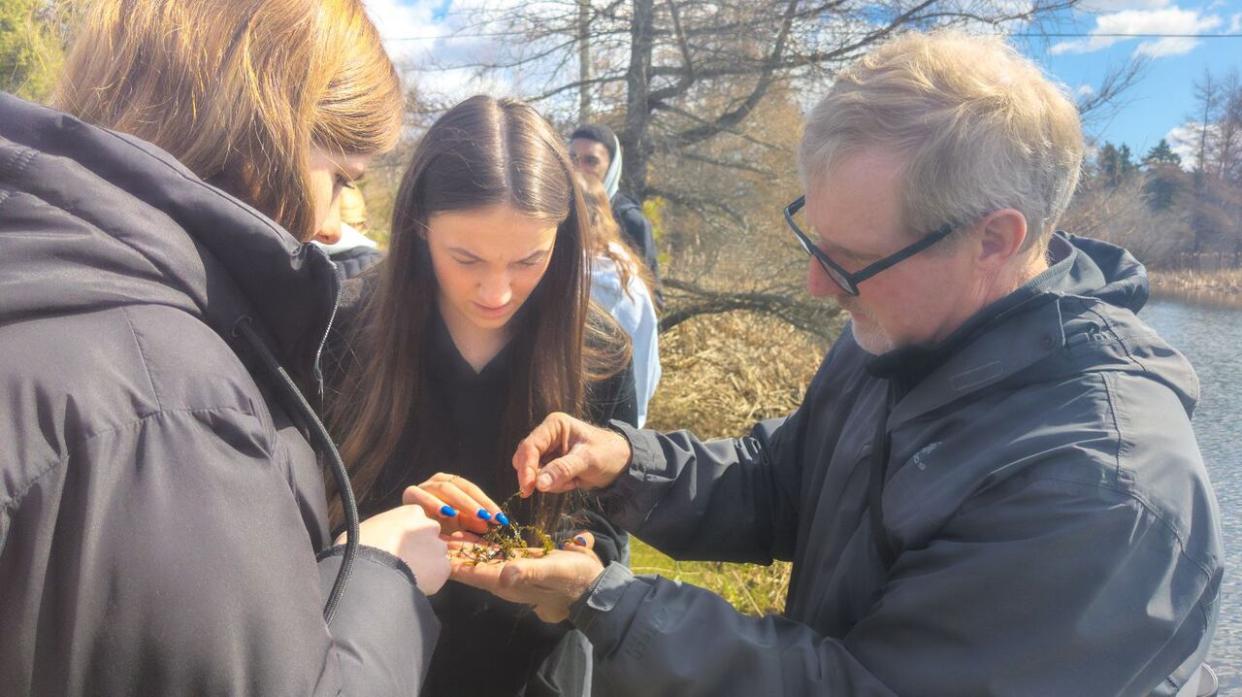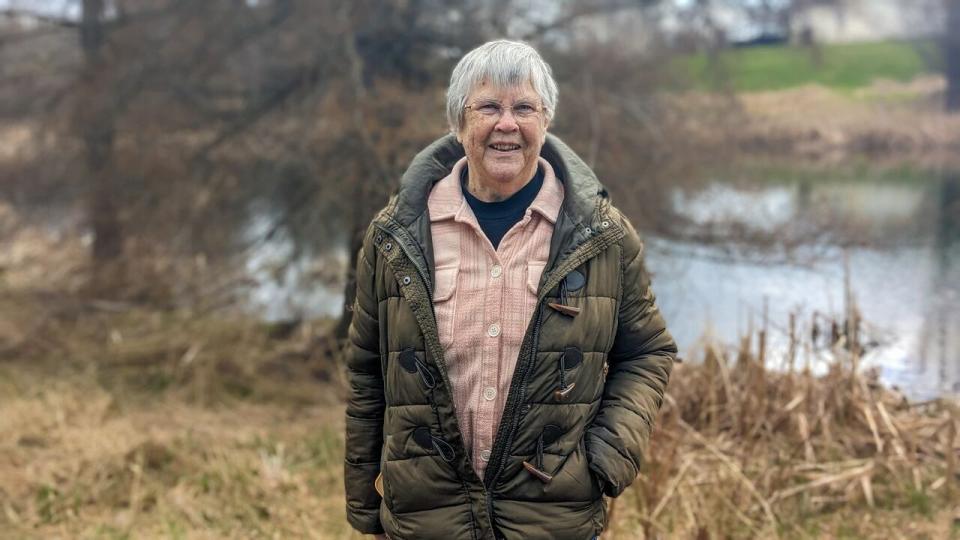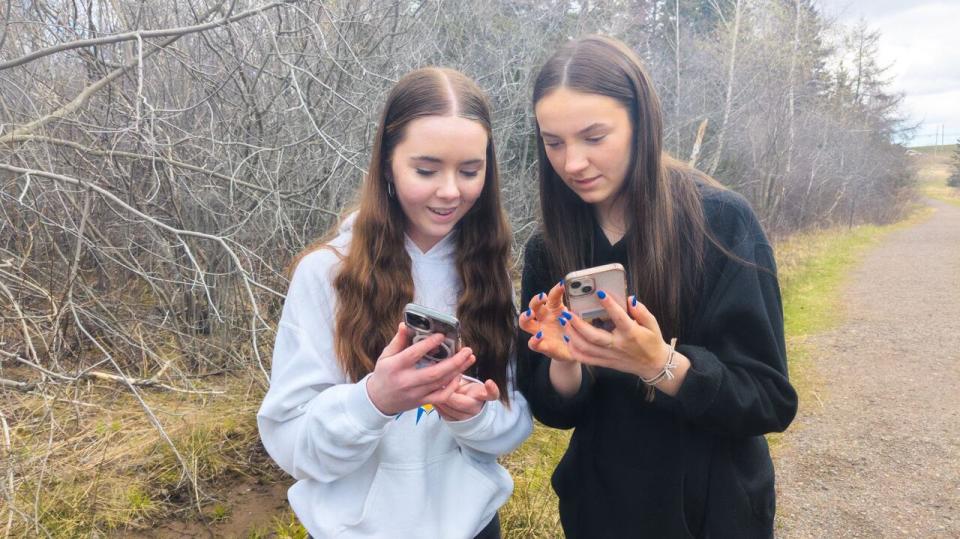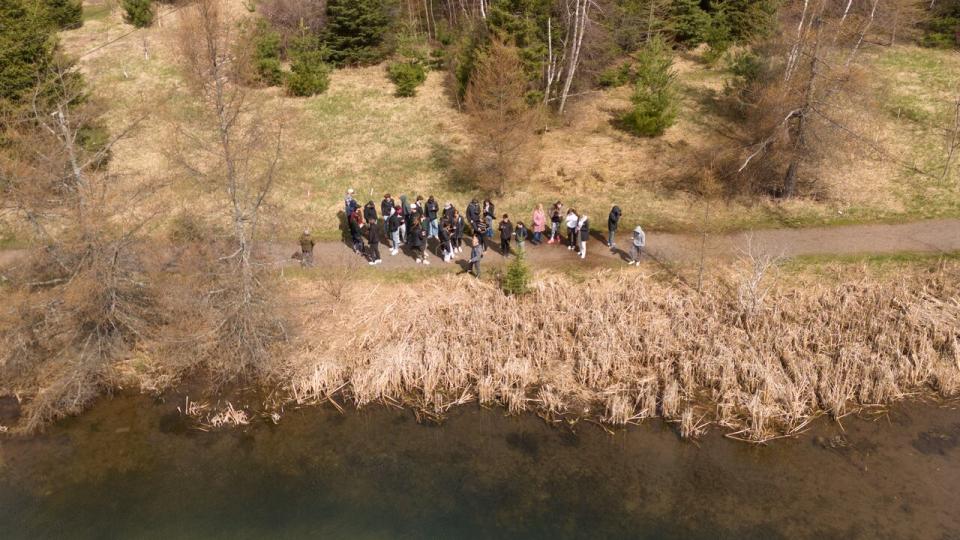P.E.I. observers join global nature challenge

Springtime on Prince Edward Island may not seem like a good time for observing nature, but the local organizers of a worldwide challenge say you'd be surprised how much there is to observe.
The City Nature Challenge is a global event that started nine years ago to raise awareness about urban biodiversity.
Observers use an app called iNaturalist to post photos of plants, trees, fungi, birds and wildlife that they see around them.
Cities compete to see who can get the most observations, find the most species and engage the most people.
Charlottetown and Summerside are two of 40 Canadian cities that are taking part in this year's competition, with 675 cities competing worldwide.

Rosemary Curley, a volunteer with Nature P.E.I., wants to grow the number of participants in the challenge. (Shane Hennessey/CBC)
P.E.I. joined the City Nature Challenge a couple of years ago, and organizers are trying to build the number of both participants and species observed, despite trees and plants on the Island not yet being in full bloom.
"All the trees, a lot of plants are identifiable, and [if] you go to the ponds, you're going to see some amphibians," said Nature P.E.I. volunteer Rosemary Curley.
"Also, some other big groups would be the mushrooms, and we saw some today here on the trail, and moths. You can see quite a few if you put your mind to it."
Expert help
At Charlottetown Rural High School, Rob Redmond and students in his conservation class are taking part in the challenge, heading outdoors to the pond and trails next to the school.
Redmond likes the way the app works — students can post photos or sounds, then more experienced naturalists can help them identify the species.
A new species to them, it's kind of like a treasure that they find when they figure out something new.
— Rob Redmond, conservation teacher
"I think that's the nice thing about iNaturalist is that you have a community of people that may be more knowledgeable, who could actually come in and say this is what you're looking at, or if you have have misidentified something," Redmond said.
"We saw a blue-winged teal when we were walking along, and we saw some different fungi ... that they learned [about].
"A new species to them, it's kind of like a treasure that they find when they figure out something new."

Charlottetown Rural Grade 10 students Caitlin McGuire, left, and Lauryn Matheson look at some of the photos on the iNaturalist app. (Shane Hennessey/CBC)
Redmond said the amount of time some students are spending looking at screens is a big challenge right now, but at least this challenge helps get them outdoors while using an app.
"Even though they're using their phone and they're logging screen time, they're using [it] to explore what's around them," he said.
"They all have different kind of levels of knowledge depending on how much they spend outside."
'They're hooked already'
Grade 10 students Lauryn Matheson and Caitlin McGuire said they like the global nature of the challenge.
"I think it's a really cool way to connect people," Matheson said. "People are so far apart, but they saw the same bird this morning that you did. And they can let you know what bird or what tree it is. I think that's really cool."
"We might not have the same kind of species that [other areas] do," McGuire added. "So we get to go on the app and see they have this and we don't."
Curley said there are challenges to the timing of the global event, which are beyond the nature enthusiasts' control.

A view from a drone of students from Rob Redmond's conservation class taking part in the City Nature Challenge in Charlottetown. (Shane Hennessey/CBC)
"It's not green and a lot of things aren't recognizable. When they don't have the leaves on, they're less interesting to observers, and harder to identify for sure," she said.
"Hopefully it's going to take off. It's sort of a word-of-mouth thing that ... people say, 'I'm putting this on iNaturalist,' and people get hooked on it.
"I saw some of those students. They're hooked already."
Curley said some cities in Western Canada do a similar event in June or July, and P.E.I. cities may join that as well.


